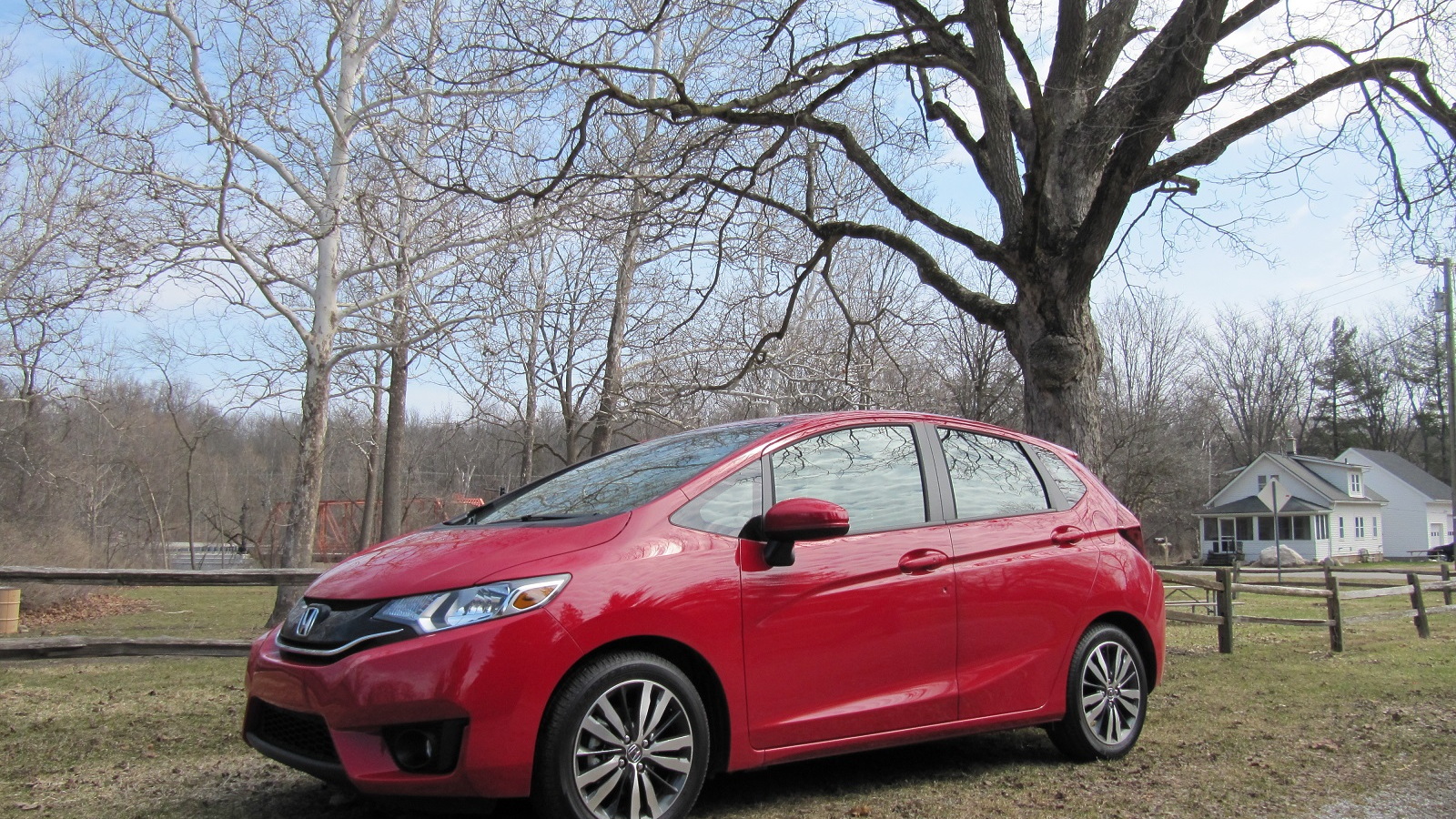Have you ever noticed your Honda Fit making a sound that reminds you of a diesel engine? It’s a strange noise that can catch you off guard.
You might wonder if something is wrong with your car or if it’s just how it’s supposed to sound. Understanding why your Honda Fit sounds like a diesel can save you from unnecessary worry and help you keep your car running smoothly.
Keep reading to find out what causes this noise and what you can do about it.

Credit: www.reddit.com
Common Causes Of Diesel-like Sounds
Honda Fit making sounds like a diesel is unusual. Many drivers find this noise strange and worrying. The cause usually lies in certain car parts working wrong. These problems create loud, rough sounds from the engine area. Knowing the common causes helps fix the issue fast and avoid damage.
Exhaust System Issues
Leaks or holes in the exhaust system cause loud noises. Exhaust gases escape and make a rough sound. Loose parts or rust can break the system. A broken muffler often makes the car sound like a diesel. Fixing or replacing damaged parts stops the noise.
Engine Knock And Timing Problems
Engine knock sounds like a heavy clatter. It happens when fuel burns unevenly inside the engine. Wrong ignition timing can cause this knocking noise. The engine works harder and sounds rough. Adjusting the timing or fixing spark plugs can solve this problem.
Fuel Injector Malfunctions
Fuel injectors send fuel to the engine. If they clog or fail, the engine runs rough. This causes uneven combustion and diesel-like sounds. Cleaning or replacing bad injectors helps the engine run smooth again.
Turbocharger And Boost Leaks
Some Honda Fit models have turbochargers. Leaks in the turbo or boost system cause loud noises. Air escapes and makes a whistling or chugging sound. Repairing leaks or replacing worn parts stops the diesel-like noise.
Diagnosing The Noise
Diagnosing the noise in a Honda Fit that sounds like a diesel engine requires careful steps. Identifying the cause helps prevent bigger problems. Start by paying close attention to the sounds and patterns. Then use tools to find the exact issue. Finally, check the engine codes to see if the car’s computer shows any errors.
Listening For Sound Patterns
Listen closely to the noise while the engine runs. Notice if it happens during acceleration or idle. A steady knocking sound might mean engine problems. A rattling noise could point to loose parts. Changes in pitch or rhythm give clues to the source. Keep the environment quiet to hear better.
Using Diagnostic Tools
Use an OBD-II scanner to connect to the car’s system. This tool reads data and shows possible faults. Mechanics use stethoscopes to pinpoint engine noises. A mechanic’s stethoscope helps find which part makes the sound. These tools save time and help find the exact problem fast.
Checking Engine Codes
Engine codes store information about issues detected by sensors. Plug in a scanner to read the codes. Codes like P0300 or P0171 suggest misfires or fuel problems. Write down the codes for research or mechanic help. Clear codes only after fixing the problem to avoid confusion.
Quick Fixes To Stop The Noise
The Honda Fit making a diesel-like noise can be annoying. This sound often points to simple car issues. Fixing these quickly saves money and time. Here are easy steps to stop the noise fast.
Replacing Faulty Spark Plugs
Bad spark plugs cause rough engine sounds. They fail to ignite fuel properly. Replace old or worn spark plugs with new ones. This restores smooth engine running and cuts noise.
Cleaning Or Replacing Fuel Injectors
Dirty fuel injectors disrupt fuel flow. This causes uneven engine noise. Clean the injectors or replace them if needed. Clean injectors improve fuel spray and engine sound.
Repairing Exhaust Leaks
Exhaust leaks make loud, odd noises. Leaks let gases escape before mufflers. Check exhaust pipes and joints for holes. Fix or replace damaged parts to stop noise.
Adjusting Engine Timing
Wrong engine timing creates knocking or diesel-like sounds. Timing controls when spark plugs fire. Adjust timing to match engine specs. Proper timing smooths engine noise and improves performance.
Preventive Maintenance Tips
Preventive maintenance helps keep your Honda Fit running smoothly. It stops small problems from growing bigger. Regular care can reduce noises like the diesel-like sound. Follow these tips to keep your engine quiet and healthy.
Regular Engine Tune-ups
Engine tune-ups improve performance and sound. Technicians check spark plugs, filters, and ignition systems. Worn parts can cause rough noises. Tune-ups fix issues before they get worse. Schedule tune-ups every 12,000 miles or once a year.
Using Quality Fuel
Fuel quality affects engine noise and health. Low-quality fuel can cause knocking and rough running. Use the recommended octane level for your Honda Fit. Clean fuel keeps the engine clean and quiet. Avoid cheap fuel from unreliable stations.
Scheduled Exhaust Inspections
The exhaust system controls engine noise and emissions. Leaks or damage can cause diesel-like sounds. Have your exhaust checked during routine service visits. Fixing leaks keeps your car quieter and safer. Replace worn parts promptly to avoid bigger issues.
When To Seek Professional Help
Hearing your Honda Fit sound like a diesel engine is unusual. It signals a problem that needs attention. Ignoring strange noises may lead to costly repairs. Knowing when to seek professional help can protect your car. Prompt action keeps your Fit running smoothly and safely.
Signs Of Serious Engine Damage
Loud knocking or banging sounds indicate engine trouble. Smoke from the exhaust shows burning oil or fuel. Loss of power means the engine struggles to run. Poor fuel economy signals inefficient engine performance. Warning lights on the dashboard demand immediate checks. Strange smells inside the car can mean leaks or overheating. These signs need quick diagnosis to avoid major damage.
Choosing The Right Mechanic
Pick a mechanic experienced with Honda vehicles. Check for certifications like ASE or factory training. Read reviews to find trustworthy and skilled professionals. Ask if they offer a warranty on repairs. Clear communication about costs and timelines matters. A good mechanic explains problems in simple words. Trust builds from honesty and quality service.

Credit: www.reddit.com

Credit: www.greencarreports.com
Frequently Asked Questions
Why Does My Honda Fit Sound Like A Diesel Engine?
Your Honda Fit may sound like a diesel due to engine knocking or worn components. This noise often comes from the fuel injectors or exhaust system. Regular maintenance can help identify and fix these issues early, preventing further engine damage and restoring smooth operation.
Can A Honda Fit Engine Noise Indicate Serious Problems?
Yes, unusual engine sounds can signal serious problems like faulty injectors or engine wear. Ignoring these noises may lead to costly repairs. It’s important to get your Honda Fit checked by a mechanic to diagnose and resolve the noise source promptly.
How To Fix A Honda Fit That Sounds Like A Diesel?
Fixing a noisy Honda Fit involves inspecting fuel injectors, spark plugs, and exhaust parts. Cleaning or replacing faulty components often reduces the diesel-like sound. Regular tune-ups and using quality fuel also help maintain smooth engine performance and minimize unusual noises.
Is A Diesel-like Sound Normal For A Honda Fit?
No, a diesel-like sound is not normal for a Honda Fit. The car typically runs quietly with a smooth gasoline engine. Such noise usually indicates engine or exhaust system issues that need professional attention to prevent further damage.
Conclusion
The Honda Fit’s sound might surprise some drivers. It can resemble a diesel engine, but it is not one. This noise comes from the engine design and exhaust system. Many owners find the sound normal after some time. It does not affect the car’s performance or fuel efficiency.
Knowing this helps reduce any worries about the strange noise. The Honda Fit remains a reliable and practical choice for city driving. Its unique sound is just part of its character.
